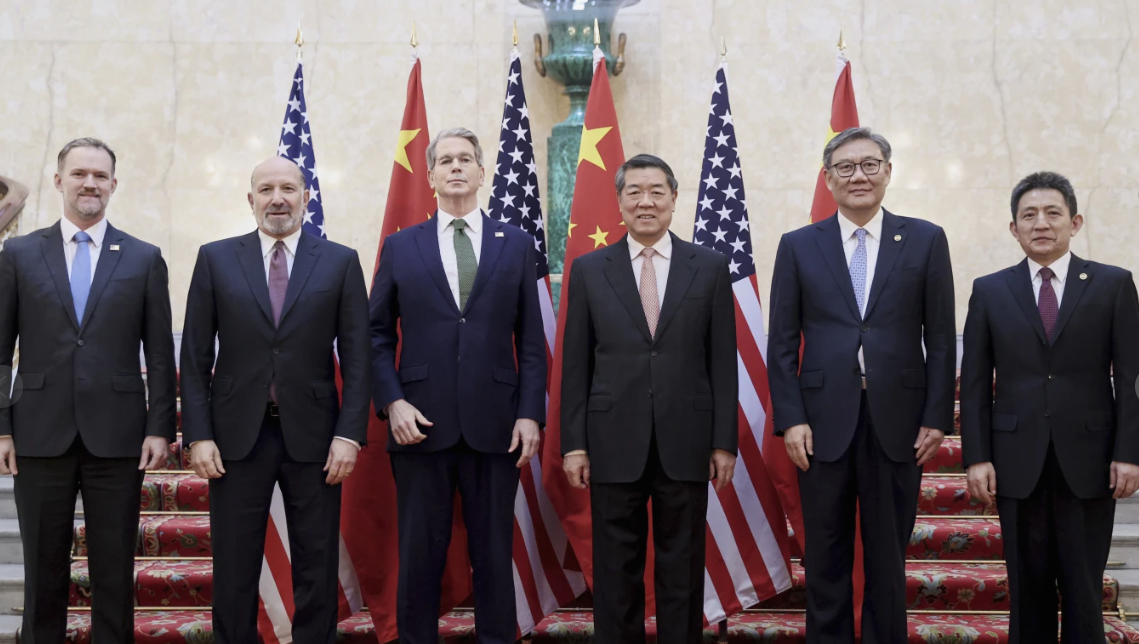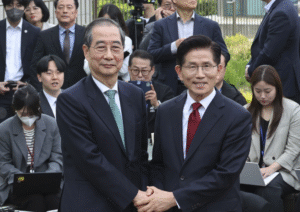Senior trade officials from the U.S. and China have agreed on a framework aimed at reviving stalled trade negotiations after several disputes threatened to derail progress, both sides confirmed. The announcement came after two days of talks in London, which concluded late Tuesday.
The discussions primarily focused on resolving conflicts related to mineral and technology exports that had disrupted a tentative agreement reached in Geneva last month. However, it remains unclear if any headway was made on the deeper issues, such as China’s large trade surplus with the U.S.
U.S. Commerce Secretary Howard Lutnick told reporters that the initial priority was to clear away negativity so talks could move forward. Following the announcement, Asian stock markets experienced gains.
These talks followed a phone conversation between President Donald Trump and Chinese President Xi Jinping last week, aimed at calming tensions. According to China’s official news agency Xinhua, Chinese Vice Minister of Commerce Li Chenggang confirmed that both sides had reached an agreement in principle on a framework to implement the consensus from the phone call and previous Geneva discussions.
Details about a potential next round of talks have not yet been disclosed. The Chinese delegation, led by Vice Premier He Lifeng and including Commerce Minister Wang Wentao and Li Chenggang, met with Lutnick, Treasury Secretary Scott Bessent, and Trade Representative Jamieson Greer at Lancaster House, near Buckingham Palace.
Wendy Cutler, a former U.S. trade negotiator, noted that the disputes had consumed 30 of the 90 days both countries had to resolve their disagreements. In Geneva, both sides agreed to suspend most tariffs above 100% for 90 days to ease tensions caused by an escalating trade war that had raised fears of a global recession. The World Bank recently lowered its growth forecasts for the U.S. and global economies due to increased trade barriers.
Cutler pointed out that with only 60 days left, important issues still need addressing, including unfair trade practices, excess production capacity, transshipment, and fentanyl concerns.
Since the Geneva meeting, tensions have flared over advanced semiconductors crucial for artificial intelligence, visa restrictions for Chinese students in the U.S., and rare earth minerals vital to industries like car manufacturing. China, as the world’s largest rare earths producer, has suggested it might accelerate export licensing, while Beijing also seeks the U.S. to lift limits on Chinese access to advanced semiconductor technology.
Lutnick emphasized that resolving rare earth export issues is a key part of the framework, noting the U.S. will remove some of the measures it had imposed in response, although he did not specify which ones. He stated that once China approves more export licenses, the U.S. will correspondingly reduce its export restrictions.
Cutler remarked that it would be unprecedented for the U.S. to negotiate its export controls, which have been a point of friction for nearly two decades. She warned that this move might lead China to push for including export controls in future trade negotiations.
Meanwhile, a federal appeals court in Washington allowed the government to continue collecting tariffs imposed by Trump not only on China but also other countries, while the administration appeals a ruling against his trade policy.
Trump reiterated his goal to open up China’s market to U.S. products, saying, “If we don’t open up China, maybe we won’t do anything. But we want to open up China.”













